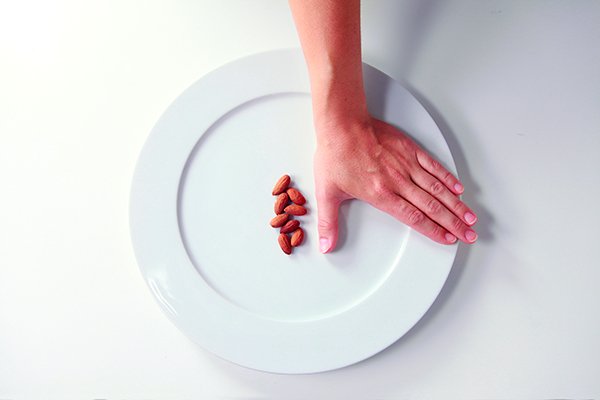The Best Self-Care Tips to Beat the Winter Blues
I don’t know about you, but blue skies and sunshine make me feel - instantly - 85% better about my life.
So when the days become shorter with darkness and cloud cover, it can feel like the sun has disappeared altogether - the sun in the sky and the sun in my heart.
Thankfully, there are so many ways to bring warmth and light into your body, mind, and mood during the winter months.
As a wellness coach, it’s my job to help my clients find ways that support their well-being all year long - through the natural cycles of the seasons, as well as the natural cycles of the body and of life itself.
Here are my top 7 self-care tips to beat the winter blues.
Bring your attention to your body
Connecting with your body can help relieve feelings of anxiety, depression, moodiness, and lethargy.
The body has its own intelligence and can help you understand your needs. And knowing what you need is the first step to feeling better.
It’s so easy to disconnect from your body with to-dos, computers, phones, and work.
Doing check-ins with your body regularly throughout the day can help you make the best choices for uplifting your mood.
These practices also help regulate your emotions and help bring your nervous system into a state where you have the clarity to make healthier choices.
Body-based exercises to try out include:
breathwork (4, 7, 8 breath)
5-minute guided meditations
cold exposure (cold showers, cold plunges)
body scans
grounding exercises
and massages.
2. Dress warm and get outside - even if the sun isn’t shining
Cold weather makes us less likely to spend time outside, but you can benefit from the UV rays even when it’s cloudy. So take up some winter activities and make use of the daylight that we do get!
Preliminary studies in people have suggested such problems as increased fatigue, decreased performance, diminished immunological defenses, reduced physical fitness, and possibly impaired fertility associated with living and working under incandescent or cool-white fluorescent lights.
3. Make the effort to meet up with friends
It can feel easy to hibernate in winter. If you have a tendency to stay at home - make an effort to invite some warm friends over to lighten your heart.
If you’re a menstruating person, consider planning ahead in the winter months. Make your social plans during the first two weeks of your cycle when your energy is at its highest.
4. Move your body every day - even just a little
Moving your body gets everything else going inside of you - your endorphins, neurotransmitters, blood, breath, and chi.
It doesn’t have to be a full hour.
It can be a 10-minute movement break or skipping rope for 5 minutes.
Other great options are:
strength training,
yoga,
tai chi,
dance classes,
or even private dance parties in your kitchen (I love these with my daughter).
5. Supplement with Vitamin D and Omega-3
Our major source of vitamin D is the sun. Obviously, with less light, we get less of this vitamin too.
Low blood levels of vitamin D are linked to more signs of depression and many parts of the brain, including those involved with depression, contain receptors for Vitamin D.
I recommend getting vitamin D drops (over pill form) and also getting one that includes vitamin K2.
Omega-3 is another important supplement to take year-round, as it plays a role in supporting neuronal cell function, neurotransmission, and immune reactions and helps reduce inflammation in the brain.
In one double-blind, randomized, controlled trial involving over 430 outpatients enrolled in treatment programs at eight academic and psychiatric clinics in Canada, patients who took an omega-3 supplement showed improvements in both self-reported and clinical assessments of their symptoms. These improvements were comparable to those observed with common antidepressant drugs.
6. Support your brain with healthy fats
About 60 percent of your brain is comprised of fat and close to 25 percent of your body’s total cholesterol is located in your brain.
This means you need healthy fats so that your brain can be a beautiful environment for serotonin to thrive.
Furthermore, healthy fats also help you to absorb the vitamin D you will be supplementing with.
Foods that are high in healthy fats include:
coconut oil,
avocados and avocado oil,
nuts (almonds, walnuts, etc),
nut butters,
seeds (hemp, pumpkin, chia, etc.),
olives and olive oil,
cold-pressed seed oils,
and even cacao chocolate.
A serving size of healthy fats is 1 thumb for women and 2 thumbs for men.
Depending on your health, performance, and body composition goals, the number of servings per day can vary - but in general, you might aim for 2-4 servings per day.
7. Sweat it out in the sauna
The easiest way to get your sweat on is to hop into a traditional dry sauna, especially if you’re not prone to sweating much during exercise or have trouble sticking to an exercise routine at all.
There has been a lot of high-quality research on sauna bathing (since it is such an integral part of Finnish culture) showing the benefits of improving mood and combating depression.
In a randomized, double-blind study of 30 healthy adults diagnosed with depression, participants who were exposed to a single session of whole-body hyperthermia, in which core body temperature was elevated to 38.5°C (101.3°F), experienced an acute antidepressant effect that was apparent within a week of treatment and persisted for six weeks after treatment.
Inside our wood-fired barrel sauna at Budding Moon
Which self-care tip will you start with to beat the winter blues?



